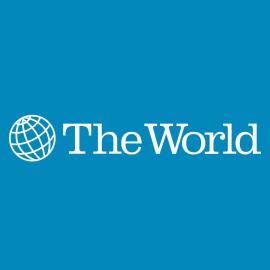At the NATO leaders summit in Brussels last week, the defense alliance said it would begin formally studying how climate change impacts security threats, calling climate change, “one of the defining challenges of our times.”
Officials also pledged to “significantly reduce greenhouse gas emissions from military activities,” with a goal of promoting military operations that are more resilient and less polluting.
The alliance said that climate change makes it harder for militaries to do their jobs.
A greater understanding of the ways that climate change exacerbates conflict can help design peacebuilding missions that work, said Janani Vivekanada, who heads the climate and security program at adelphi, a research institute in Germany.
Vivekanada’s group is leading a new initiative called “Weathering Risk,” that combines the latest climate change data with analysis of social and economic conditions to help decision-makers see the connections between climate and conflict.
“It’s about connecting climate science to policy, to support climate security, risk-informed decisions and evidence-based solutions,” said Vivekanada. “It’s aimed at all actors across the defense, development and diplomacy communities.”
Vivekanada spoke to the World’s Marco Werman about the significance of NATO taking on climate change.
Share on


